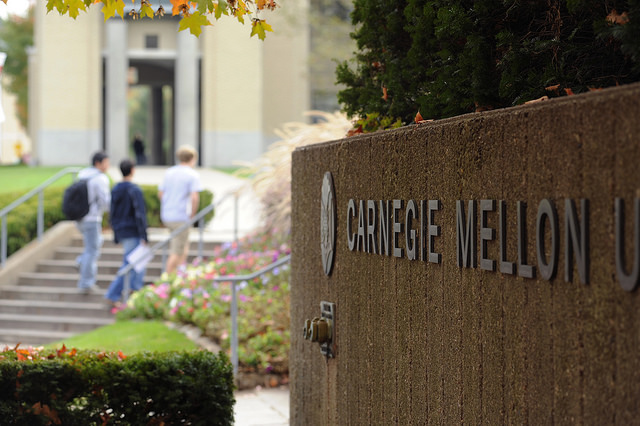
Carnegie Mellon Announces Release of Toolkit To Kickstart Global Revolution in Educational Effectiveness
For decades, Carnegie Mellon University has developed new technology-based learning techniques that have improved student performance and teaching skills for its campus community and select partners. Now the university is making them more widely and openly available for all post-secondary and K-12 institutions.
Carnegie Mellon has announced it will unveil a major release of tools, software and content that is intended to catalyze a new era of progress in educational effectiveness that is equal to the challenge of rapid change and growth in 21st century educational needs. The suite of tools is the product of over $100 million of research and development from a wide variety of funders.
The suite of tools will be released in stages over the next year and represents a major departure from the "silver bullet" or "moon shot" efforts to revolutionize education with technology in recent years. Instead, the contribution is intended to democratize the science of learning and empower educators across the world to become citizen scientists. Carnegie Mellon's goal is to provide knowledge of how to conduct applied educational research that classroom educators, researchers and educational technology companies can learn, apply, extend and share with the global educational community.
"We live in a moment when our educational institutions are in danger of a catastrophic failure that we cannot afford. College and university closures are becoming regular occurrences, even as tuition and student debt rise to record levels," said Norman Bier, executive director of the Simon Initiative.
"This is happening at the same time that even highly educated people need to continue learning in order to keep their skills up-to-date, and when people all over the globe need increasing access to high quality educational opportunities through technology. In the face of these institutional and structural challenges, demonstrably improving outcomes and learning for students must be our foremost concern," Bier said.
The Simon Initiative, established by CMU as a cross-disciplinary learning engineering ecosystem dedicated to measurably improving student learning outcomes, is leading this release. The approach of making the toolkit available is different from recent trends in higher education.
"Recent high-profile efforts to revolutionize education have not lived up to their hype. While many people have learned from MOOCs, they have not lived up to their promise of providing the world with a high-quality, free education," said Erin Czerwinski, the Simon Initiative's product and community manager. "Artificial intelligence and adaptive learning have helped some students succeed in some subjects but failed to produce the massive improvements that have been advertised. While these innovations and others have added value, Carnegie Mellon University believes that education will only be truly revolutionized by creating a community of empirically minded educators."
The university will contribute the tools and content that embody much of its own research activity, with the goal of creating a global research community. The full scope of the contribution will be unveiled at the Empirical Educator Project's (EEP) second annual summit, which Carnegie Mellon will host May 6-7.
The EEP, a cohort of universities and educational technology vendors selected by the e-Literate educational technology website as a network in the kind of collaboration CMU envisions, also will act as a pilot group to create the seed for the global network and help the university refine its support for the initiative.
"So much of Carnegie Mellon's Simon Initiative builds on Herb Simon's challenge to his CMU colleagues to improve education through a collaborative, research-driven approach. The challenges facing higher education are too big for any one institution to tackle alone; we're opening this toolkit as a first step in building a larger, evidence-based community," said Richard Scheines, dean of the Dietrich College of Humanities and Social Sciences and faculty lead for the Simon Initiative.
"EEP represents the perfect partner for this work - the Simon vision is a such clear part of the project's philosophy, and the participants are already committed to the approach that the toolkit supports. This toolkit is literally decades worth of work; I'm excited to see it opened up to the world, and even more excited for what comes next," Scheines said.
"We are thrilled and humbled that Carnegie Mellon has chosen our network as the seed bed for their great undertaking," said Michael Feldstein, coordinator of the EEP. "We need a scientific revolution in education akin to the one we had in medicine 150 years ago. In the 1860s, doctors had no formal training in evidence-based medicine. There were no medical journals or medical conferences. There weren't even standards of proof. That is exactly the situation we are in with education today. Technology won't solve that problem. If you gave an MRI scan to a doctor in the 1860s, how useful would that be? Carnegie Mellon's contribution is eye-catching because of the dollar amount, but the real revolution is in its nature. This isn't a silver bullet, and it isn't charity. It's an invitation to the educators of the world for us all to solve big problems together."